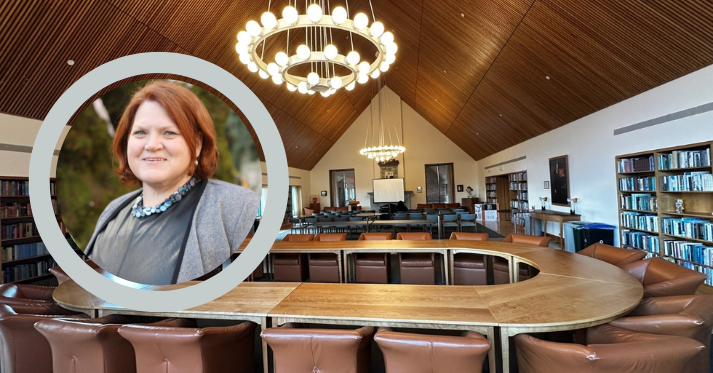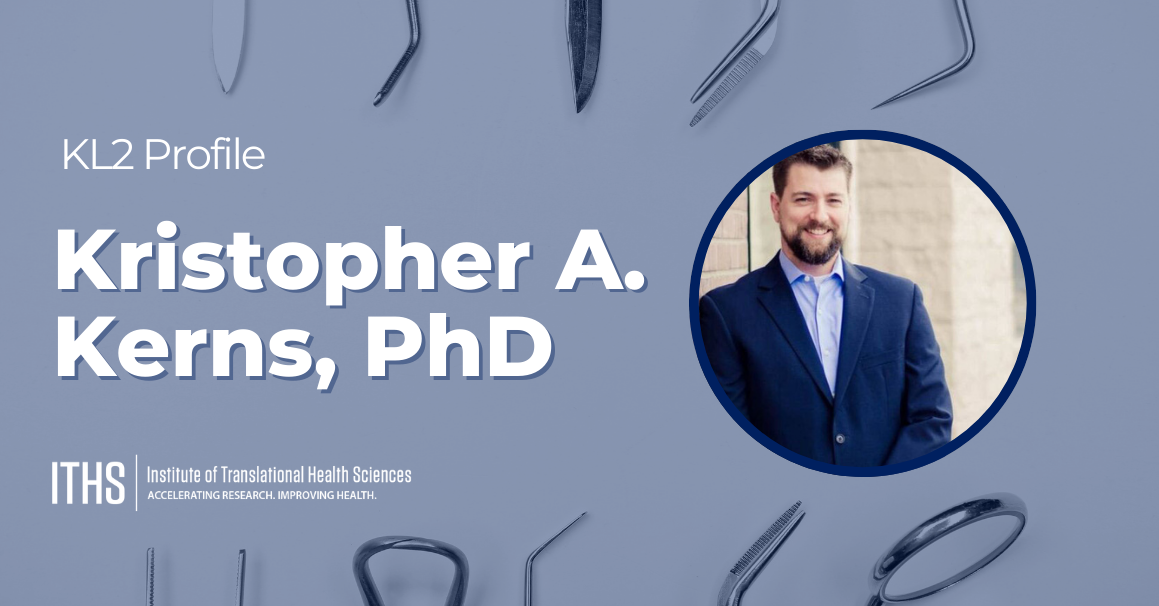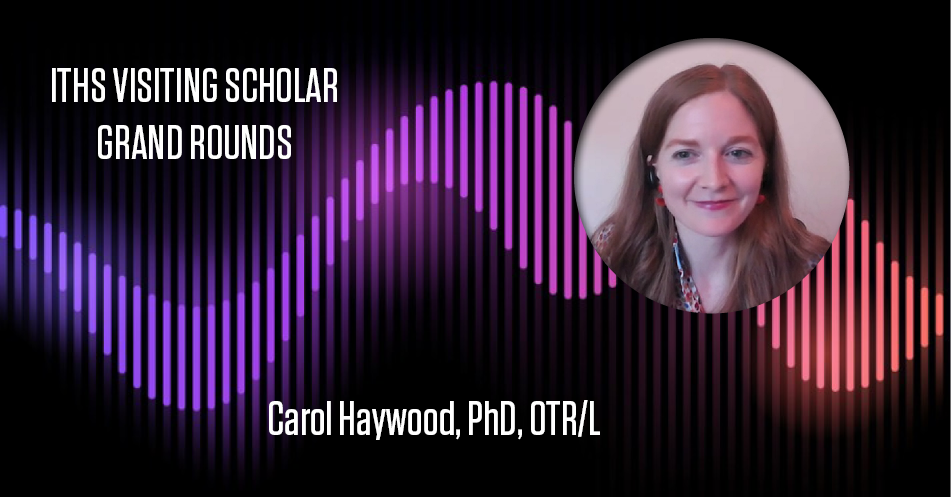
27 Jun Visiting Scholar Discusses Healthcare Barriers for People with Disabilities
As part of the ITHS Visiting Scholar Grand Rounds Series, Carol Haywood, PhD, OTR/L gave a talk to discuss her research into the kinds of barriers people with disabilities face in the US healthcare system, as well as some of the ways those barriers might be removed.
“I wanted to intervene in the healthcare system to mitigate inequities in healthcare for people with disabilities,” says Dr. Haywood, now a KL2 scholar and research assistant professor at Northwestern University. She says she’s known she wanted to work as an occupational therapist since she was in high school. Once she started practicing occupational therapy, she says she observed changes in care that concerned her: “What I saw was this gap between the experience of disability that was occurring within a rehabilitation setting and the experience of disability that was occurring within the real world “
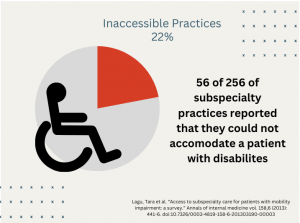 To help find ways to address the problems arising from these differences, she earned her PhD in Occupational Science (the study of human activities and their influence on health), with a research focus on the disability experience of youth with spinal cord injuries.
To help find ways to address the problems arising from these differences, she earned her PhD in Occupational Science (the study of human activities and their influence on health), with a research focus on the disability experience of youth with spinal cord injuries.
In her talk, she shared that even though the Americans with Disabilities Act prohibits medical practices from discriminating against patients with disabilities, research by Dr. Haywood’s mentor and co-author, Tara Lagu, MD, MPH, found that barriers still exist. Dr. Lagu found that 22% of practices were still inaccessible to people who use wheelchairs. Another study showed that only 40% of doctors were confident in their abilities to offer the same quality of care to patients with and without disabilities. “This goes back more than 50 years and really has risen up as a civil rights movement,” said Haywood. “And yet what we continue to see are persistent inequities in healthcare for people with disabilities.
In their paper ‘I Am Not The Doctor For You’: Physicians’ Attitudes About Caring For People With Disabilities, Drs. Lagu and Haywood published the results of survey they did, focused on doctors. They found that physicians were overwhelmed by the demands of the healthcare system and the ADA, and this lead to physical, communication, knowledge, attitudinal and structural barriers for people with disabilities who desired routine healthcare. “As the [physicians’] frustration builds, as people are talking more and more about the challenges of providing care for people with disabilities,” Dr. Haywood said, “some of them actually start to talk about denial of care.”
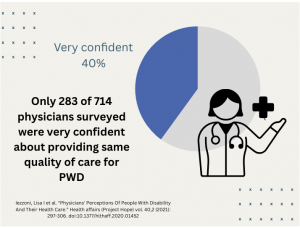 In her KL2 project, Dr. Haywood is working to conduct assessments of participation to help document and measure the barriers to accessing healthcare. “In the long term, what I wanted to do was intervene in the healthcare system to mitigate inequities in healthcare for people with disabilities,” she said, “but in the short term the problem was that I needed ways to measure experiences and outcomes of care specifically in the context of disability.”
In her KL2 project, Dr. Haywood is working to conduct assessments of participation to help document and measure the barriers to accessing healthcare. “In the long term, what I wanted to do was intervene in the healthcare system to mitigate inequities in healthcare for people with disabilities,” she said, “but in the short term the problem was that I needed ways to measure experiences and outcomes of care specifically in the context of disability.”
In one study, she’s working with Megan Morris, PhD, MPH at the University of Colorado to overhaul disability documentation and accommodation tools in Epic, so that medical practices will be better prepared to meet the needs of their patients with disabilities at the point of care. She’s also reviewing existing guidelines and recommendations for competent disability care. Her work is highly transdisciplinary, focused on big and little policy. Dr. Haywood says she publishes in ways to promote advocacy and drive change at federal and regional levels.
Watch the video of Dr. Haywood’s talk below to learn more about this important research.





